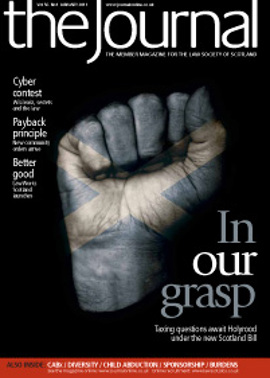Forum at the frontiers

With the mobility of sports men and women continuing to create opportunities for them, and for sports clubs and leagues, a recent case highlights some advantages of the Court of Arbitration for Sport.
On 10 August 2007, Marius Niculae, a Romanian international football player, signed a two-year employment contract with Inverness Caledonian Thistle FC. The contract, which was in standard SPL form and governed by Scottish law, provided:
“Transfer to another club – 30% of transfer fee received
In the event that during the Term of this Contract the Player’s registration is transferred to another football club the Player shall, subject to such transfer having been initiated by the Club, be entitled to a payment from the Club equivalent to the above percentage”.
Clauses such as this are common in employment contracts between players and clubs.
The dispute
The player was transferred from Inverness to Dinamo Bucharest on 1 August 2008 for a fee of 500,000 euro. The circumstances leading to that transfer were disputed between the player and the club.
The player insisted that the club had initiated the transfer, as a result, among other things, of financial circumstances. The club maintained that they had the player included in their budget, had not been actively engaged in marketing the player and had not initiated the transfer.
The player sought his share of the transfer fee before the FIFA Dispute Resolution Chamber (DRC), which has jurisdiction in disputes of an international nature between parties subject to FIFA’s regulations.
The DRC found that the club was obliged to pay a share of the transfer fee, on the basis that it had failed to prove that it had not initiated the transfer.
Appeal to the CAS
The Court of Arbitration (CAS) for Sport is a private legal institution created in 1983. The rules of FIFA provide that parties have the right to appeal a decision of the DRC to CAS, which the club did in March 2010. Following an abbreviated procedure, the CAS decided that they would hear the parties (some cases are completed on submissions alone), and that Scottish law applied.
The hearing took place in Lausanne in August 2010 before three experienced sports lawyers (one chosen by each party; the president by CAS), none of whom were Scottish. The club was represented by senior officials and a solicitor. The player, who had been represented during the proceedings, chose not to attend. On 10 December 2010 the panel upheld the club’s appeal, overturned the DRC decision and ordered the player to pay the club’s costs.
The panel construed the contract in accordance with Scottish law, finding the condition precedent to mean that the club had to be the party who began, set going or originated the transfer process in order for the player to be entitled to a share of the transfer fee. CAS found that the burden of proving who had initiated the transfer fell on the player, who had failed to discharge that burden.
International advantages
The case is a useful illustration of some of the advantages of using CAS in international disputes:
Speed. The proceedings before CAS were initiated in March and a decision issued in December. This is longer than the average CAS case, but still comparatively quick.
Internationally recognised decision. Awards by CAS are arbitral awards for the purposes of the New York Convention. In most cases, enforcement will require a fairly straightforward claim in local courts – more attractive to a club such as Inverness than litigating at first instance in Romania. Further, in this case the decision of CAS is enforceable through FIFA.
Application of Scots law. During the proceedings, CAS invited detailed submissions on the applicable law and its content. A written submission on the content of applicable Scottish law was accepted by CAS, without the need for the cost of an expert witness. CAS quoted from Scottish authorities in their decision, cross referenced to other CAS decisions. The result is a developing European sports jurisprudence. Importantly, more of that jurisprudence is becoming available on the CAS website.
Integrity of the decision-making process. The fact that the player did not attend the hearing did not disturb the process. The panel sent a recording of the hearing to the player with some information submitted at the hearing and sought final submissions from him.
Through CAS, the club has resolved what may have been a very complex international dispute, with difficult issues around jurisdiction, language and enforceability. The jurisdiction of CAS, and other sports dispute resolution bodies such as Sports Resolutions in the UK, should be borne in mind in appropriate cases.
In this issue
- Prison accommodation for transgender people
- Challenge of the new
- An issue that will not die
- Revolution in the making
- Sasine service
- The welfare imperative
- War on the web
- Payback time
- Diverse means
- Good and better
- Help where it's needed
- Appreciation: Elaine Tyre
- Forum discusses EU contract law
- Law reform update
- Time to take the plunge?
- Ask Ash
- Money talking
- Cut the risk of harm
- Trust rewritten
- Promoting responsibility
- Fathers made relevant
- Tread warily: habitats
- Forum at the frontiers
- Website review
- Book reviews
- Signs of the times






